Online can be outright frightening - parents
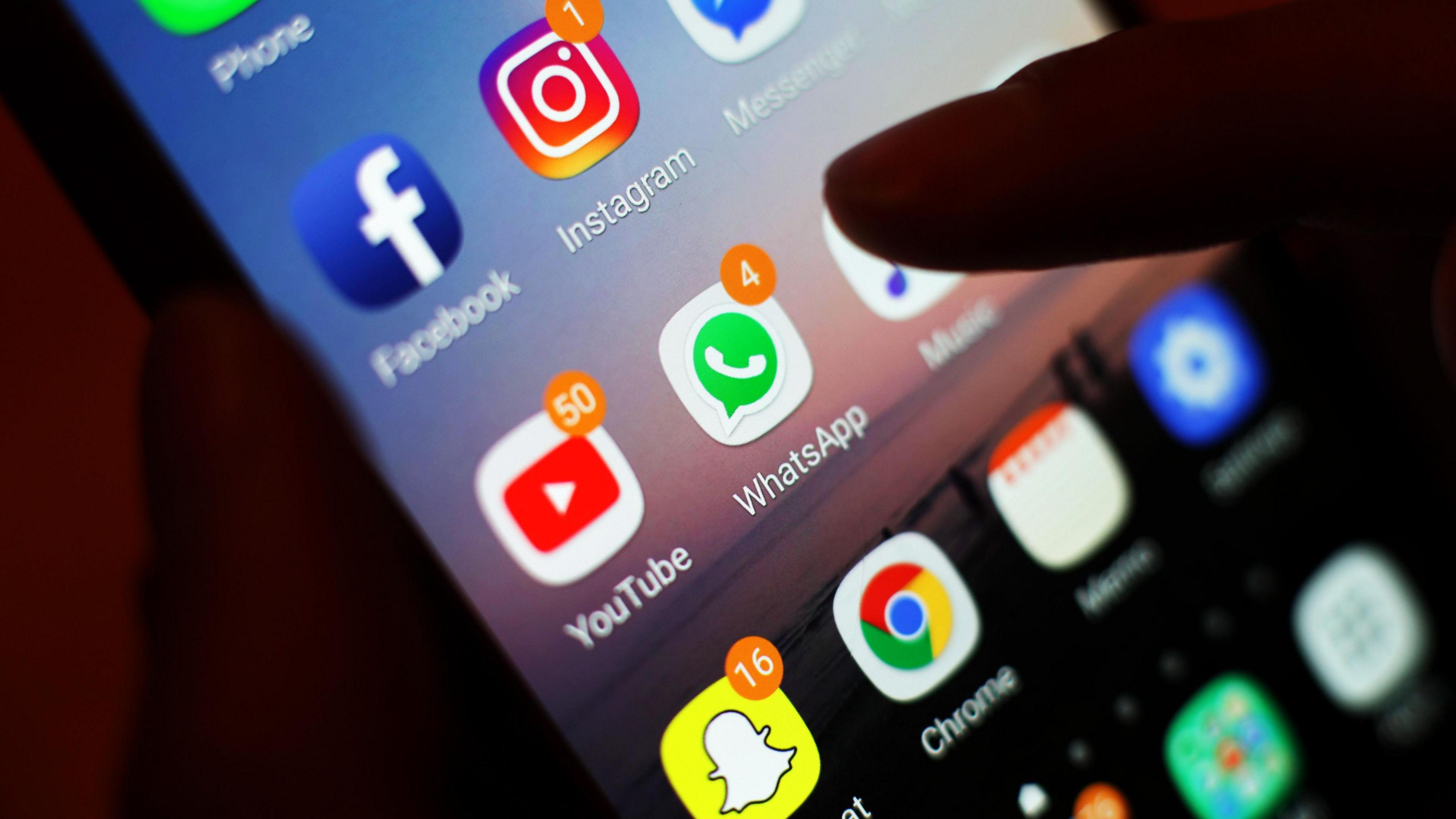
Parents have spoken out about Jersey's decision not to adopt the UK's Online Safety Act
- Published
Some parents in Jersey have said the lack of legal protection for children in the island is "outright frightening" and "really concerning".
The island did not adopt the UK’s Online Safety Act when it was being drafted in 2021.
From next year, Ofcom - the regulator - will have the power under the law to fine social media companies if they do not meet new requirements to keep youngsters safe from harmful content.
Guernsey and the Isle of Man both adopted the law but Jersey did not, with the economic development minister saying he doubted how effective the law would be and that Jersey should draft its own regulations in this area.
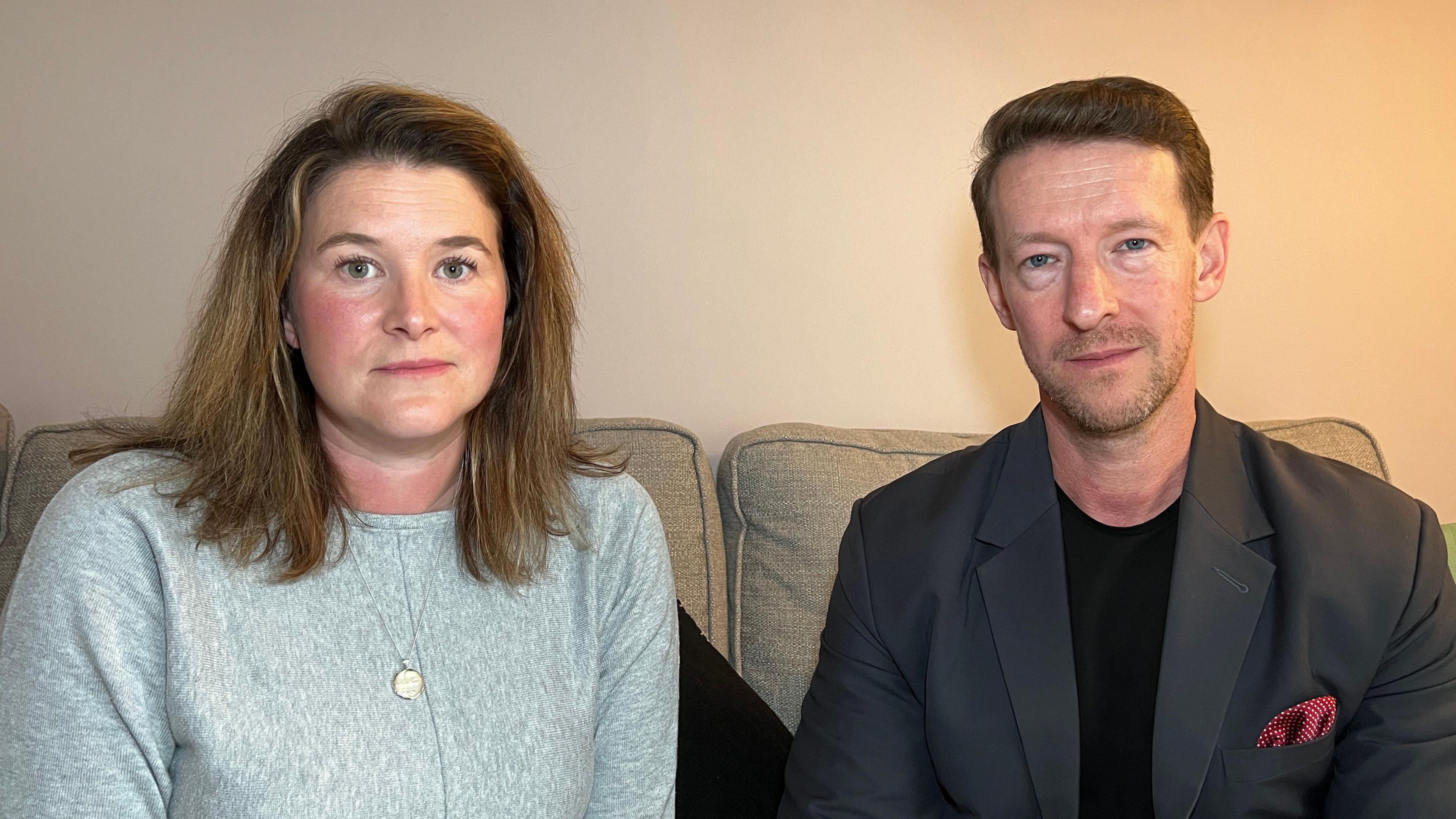
Parents Vicky O'Neil (left) and Douglas Kruger (right) have called for better protection for children when they are online
Parents Douglas Kruger and Vicky O’Neil have raised their concerns about the impact of smart phones and social media on children in the island.
Ms O'Neil said: "We need the government onboard to make legal changes, and to work with the UK about what to do with these big tech and social media companies."
Mr Kruger added: "Children are also being exposed to greater risks online and in ways that we weren't exposed to, and they don't have the abilities to deal with some of the extreme content."
Ms O'Neil added: "This is not just one worried parent - this is many parents saying this is not OK."
'False representation'
Jersey’s Children Commissioner, who promotes the rights of children in the island, carried out research which heard what young people in the island think about social media, external.
One girl, Olivia responded: "Social media does have a big influence because you have to like kind of look good on it, but in reality you kind of are lying about yourself in a way that gives a false representation of you."
Another child, Oscar added: "Because people are behind a screen where no-one knows who you are, they text you stuff they probably wouldn't say face to face."
Ofcom's research suggested children aged eight to 17 spend between two and five hours online per day.
'Over complexified'
Minister of Economic Development Deputy Kirsten Morel, who is responsible for the structuring of the internet and how it is regulated in Jersey, made the decision not to adopt the UK Online Safety Act.
Morel was questioned about this choice by a scrutiny hearing in October.
He said the "UK has made a law for 65 million people and over complexified it".
The minister added the government was looking at introducing similar legislation in Jersey but there has not been an update about what this could be and when it will be brought to the States for debate.
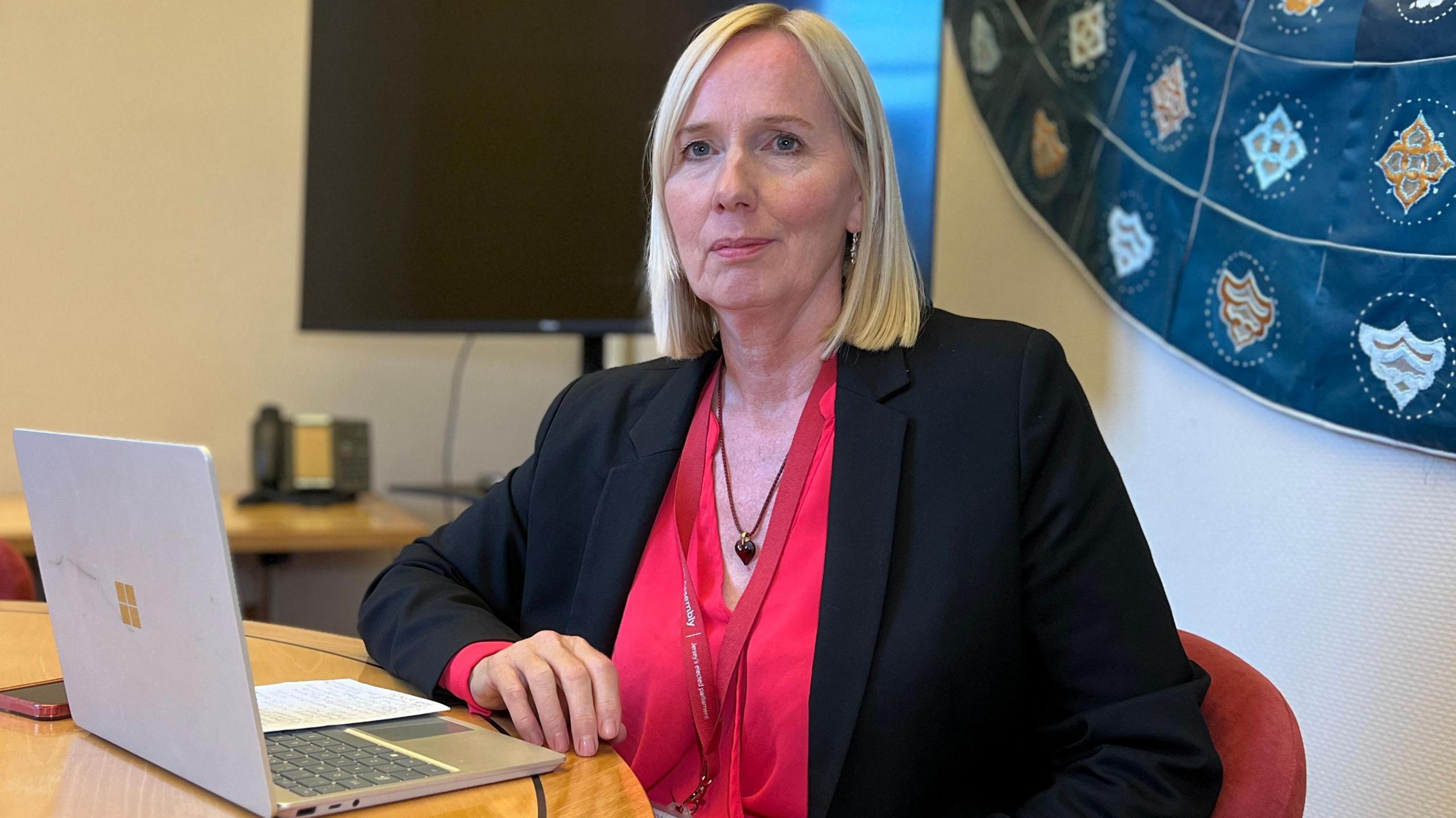
Deputy Catherine Curtis is worried Jersey is falling behind when it comes to looking after young people online
Deputy Catherine Curtis is the chair of the Children, Education and Home Affairs scrutiny panel and called for the hearing.
She said she was concerned about the welfare of children in Jersey: "It seems that children are exposed to a lot of unpleasant content online and some of it is very dangerous.
"The issues that are a huge concern to children and parents are things like self-harm, suicide and access to pornography.
"We don't have anything to cover those issues in Jersey, so I'd like to see some progress there quickly because we see elsewhere the deadly ramifications of social media use with young people."
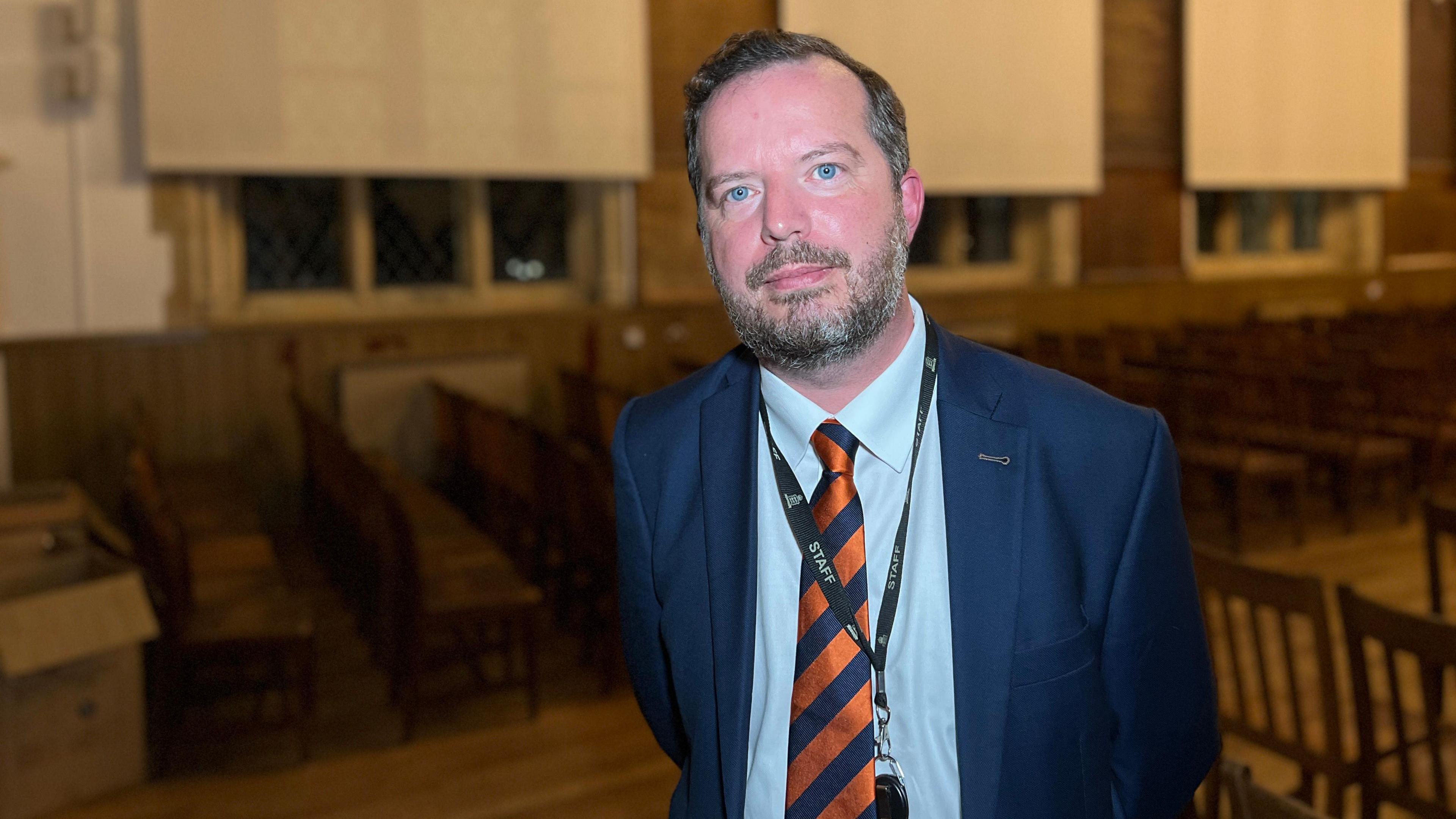
Anthony Griffin from Victoria College said the school wants to work with parents to keep children safe
While the wait for more legal online protections for children continues, Victoria College has been holding meetings with parents to advise them on how to keep their children safe.
Anthony Griffin, assistant head of student progress, said: "Every school in Jersey will have dealt with situations of online behaviour that has put a child at risk... [children] find themselves being radicalised and going down online rabbit holes."
He added: "If parents have a concern about their child being safe online then talk to their child's teachers and make sure they're sharing that information when it comes to online safety."
Follow BBC Jersey on X, external and Facebook, external. Send your story ideas to channel.islands@bbc.co.uk, external.
Related topics
- Published28 November 2024
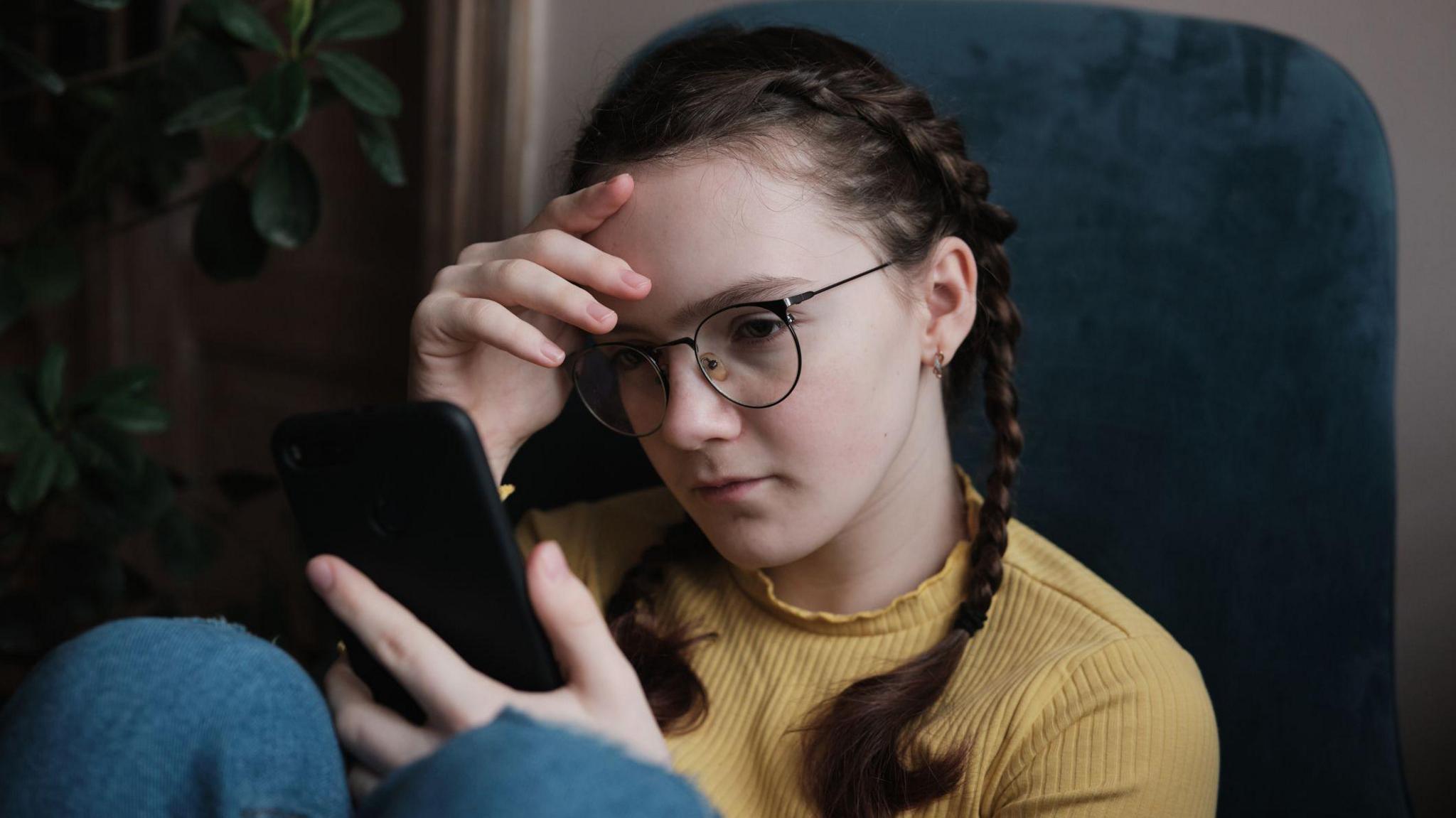
- Published13 November 2024
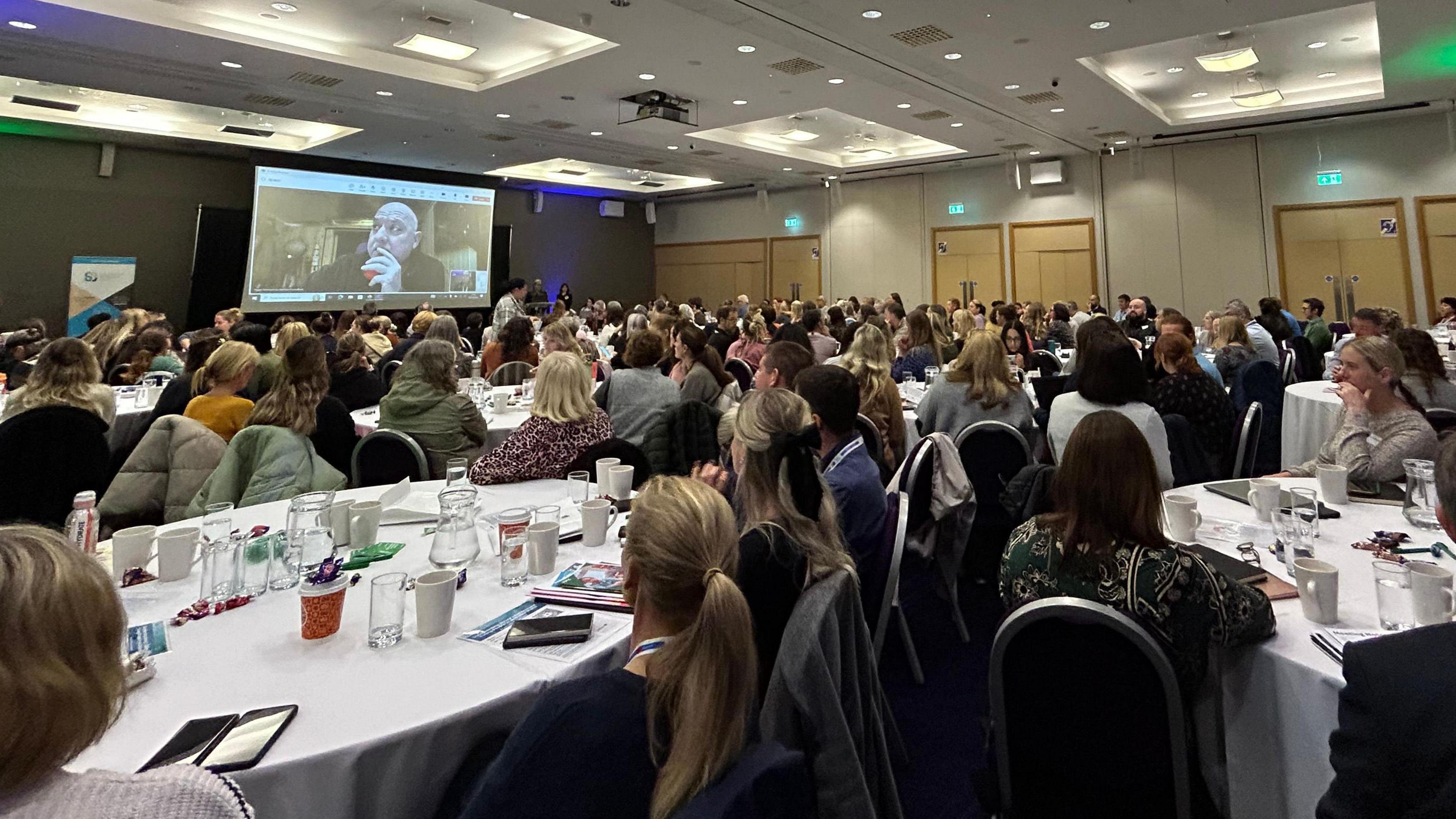
- Published17 October 2024
